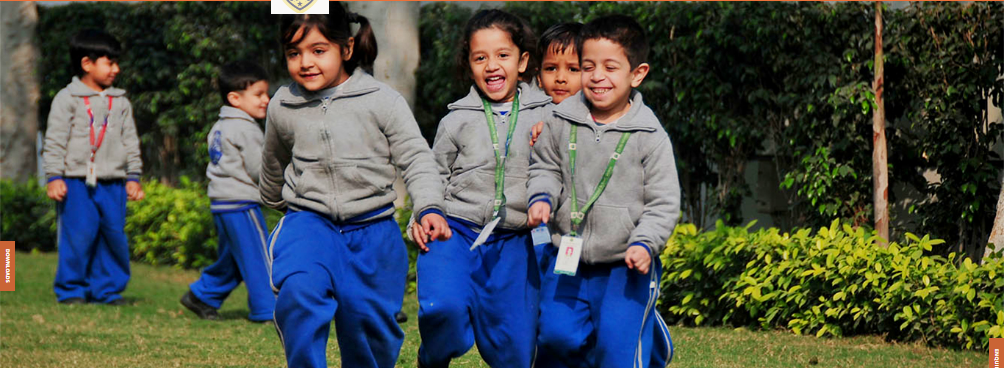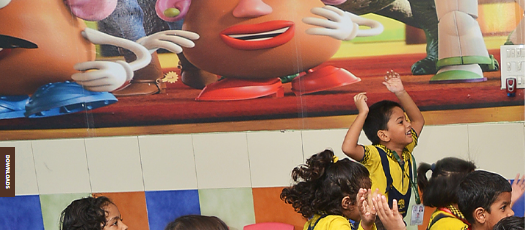
Methodology
Our curriculum comprises a seven-point programme that establishes the foundation needed by all students to step into their righterm better tomorrows. We aim:
- To develop an attitude for consistent and expeditious learning among our pupils.
- To encourage scientific interest and observational studies particularly through the local environment.
- To assist our pupils in developing a global outlook and an attitude favoring global peace and progress.
- To develop in our pupils a healthy competitive spirit.
- To inculcate the best of moral values in them.
- To nurture in them high social values through quality education.
- To help our pupils grow into complete human beings.
- With the goal to provide our students an edge over others at every step, we have extensively researched educational materials specially developed for 21st-century children and incorporated that into our teaching methods. They would also be constantly updated to be on par with international educational trends.
- MRG builds an environment that maximizes learning, inculcates values and ethics and leads to the holistic development of the child.
- The following components are therefore incorporated in the day-structure of each child and they are implanted at all levels. The method varies depending on the age group they belong to.v
Circle Time
Circle Time is an international best practice, integral to our curriculum, which serves as a great tool for the social and emotional development of children. It helps induce in students the key skills of; thinking, observing, concentrating, listening and speaking., the Circle Time activities are designed to engage all children in small group conversations and activities, with special emphasis on reflection and sharing.
Skill Time
Circle Time is an international best practice, integral to our curriculum, which serves as a great tool for the social and emotional development of children. It helps induce in students the key skills of; thinking, observing, concentrating, listening and speaking., the Circle Time activities are designed to engage all children in small group conversations and activities, with special emphasis on reflection and sharing.
Theme Time
Theme Time focuses on the creative and analytical aptitudes of the child. Theme Time approaches learning in an integrated manner. This is attained by exploring the environment through the elements of music, art and theatre, which enhance the sensory and cognitive abilities of the child, making learning fun. Stories are often woven in, keeping in mind the concepts dealt on that day.
Theme Time
Theme Time focuses on the creative and analytical aptitudes of the child. Theme Time approaches learning in an integrated manner. This is attained by exploring the environment through the elements of music, art and theatre, which enhance the sensory and cognitive abilities of the child, making learning fun. Stories are often woven in, keeping in mind the concepts dealt on that day.
Rules & Regulations

Rules For Leave
- Half day leave is not allowed.
- No telephonic messages regarding leave will be entertained.
- Sickness for a prolonged period of time requires a Medical Certificate.
- Absence of even a day should be justified by a letter/or entered in the school diary signed by parent.
- If parents want to take their children for some essential reason, they are requested to submit the application at reception & must make arrangements to take them home after the approval of Head of the School.
Parent School Partnership
ome is as important a grooming ground as school and childhood is the most crucial period for learning. In order to achieve the all round development of the child maximum cooperation between the parents and school authorities is needed.
With a mission to create an inspiring ambience from home to school parents are updated about the development of the child and his needs through special counselling sessions, an intensive regimen of circulars and diaries and Parent Teacher meetings.
Parents receive a progress report of their wards at the end of each semester. They are encouraged to meet and interact with the faculty during PTMs and motivate their wards to achieve higher levels of performance.